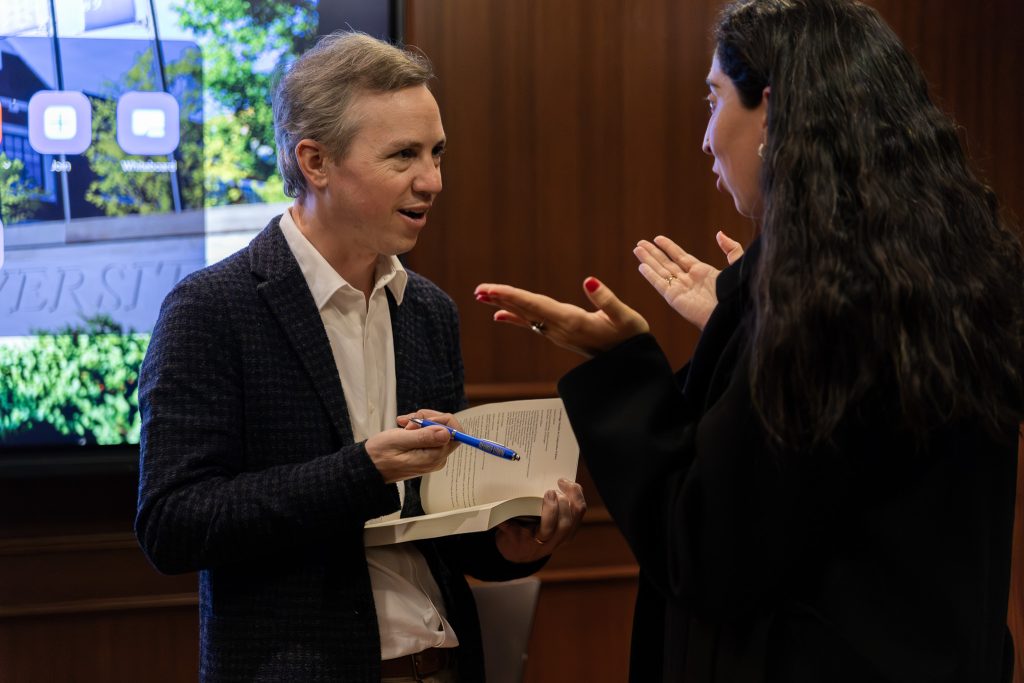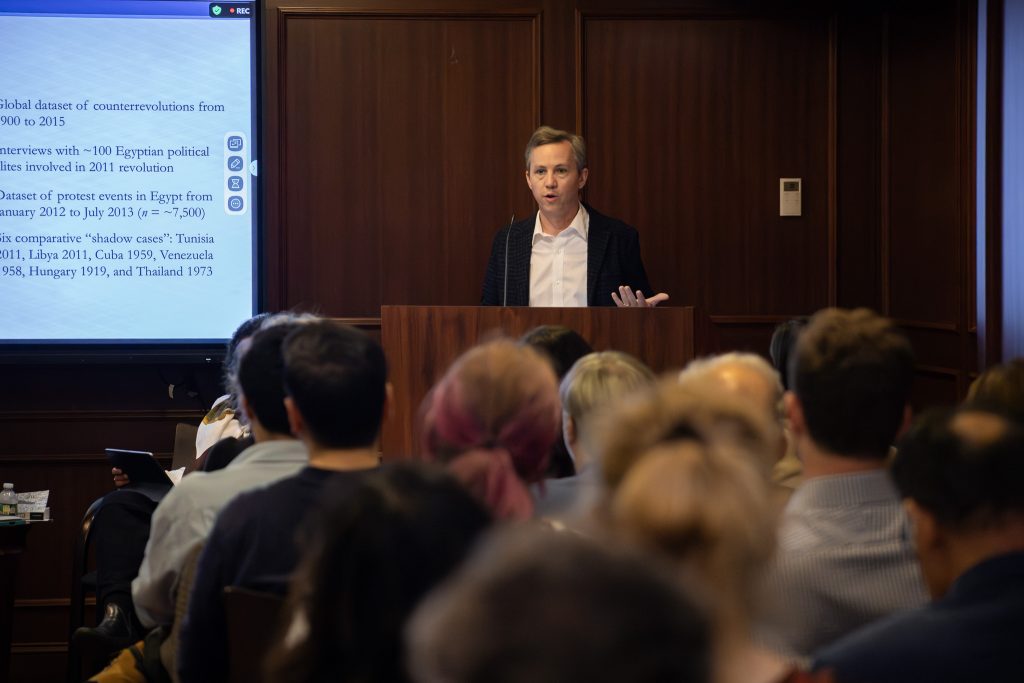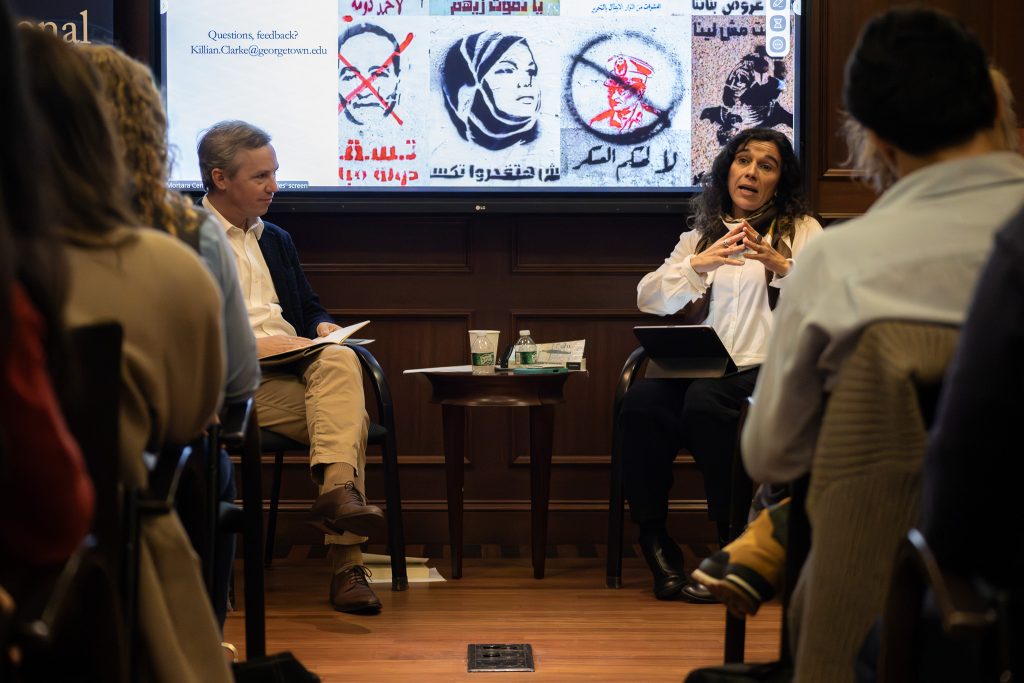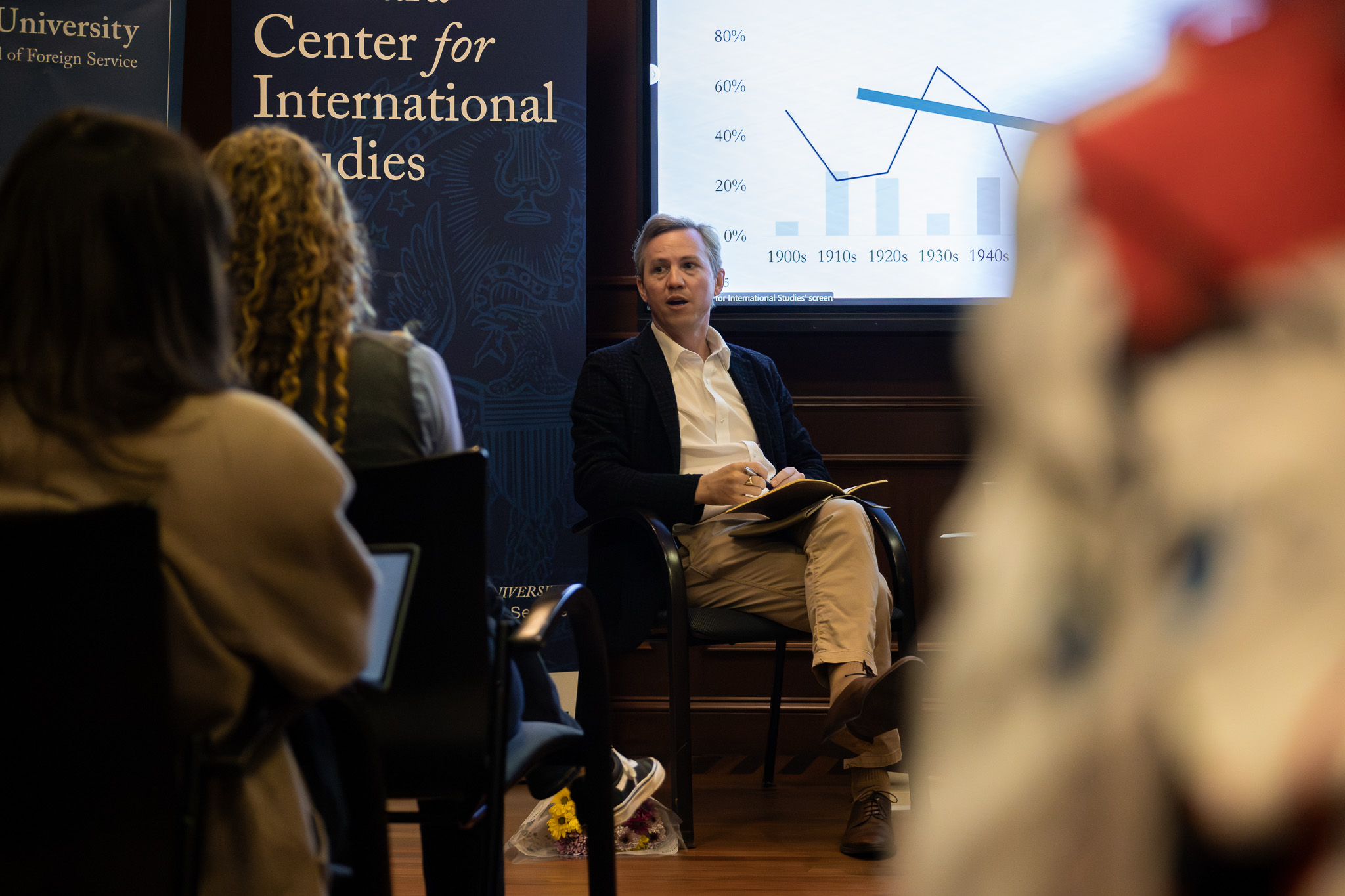Mortara Center Hosts Launch of Professor Killian Clarke’s Book, Return of Tyranny
By Zach Rojo (SFS ’28) —
On October 30th, the Mortara Center hosted the launch of SFS Professor Killian Clarke’s new book, Return of Tyranny: Why Counterrevolutions Emerge and Succeed, in which he sets forth an extensive exploration of successful and unsuccessful counter-revolutions around the world. The book uses Egypt as an illuminating case study demonstrating why revolutions can fail, and what revolutionaries can do about it.
The book launch event featured a lively discussion between Professor Clarke and an engaged audience. After an introduction from Professor Fida Adely of the Contemporary Arab Studies Department, Professor Clarke discussed the significance of Return of Tyranny, before answering questions from the discussant and moderator, Professor Laia Balcells, and audience members. During the Q&A session, Professor Clarke addressed questions such as the role of factors such as population and foreign support, and discussed the critical role of the many interviews he conducted with key figures in Egypt’s revolution and counter-revolution, including many who have never spoken publicly about the events they addressed.
Professor Clarke had been a scholar of Egyptian politics long before writing Return of Tyranny. Stemming from his background in studying Middle Eastern affairs and Arabic during his undergrad years, Professor Clarke discussed the politics of Egypt’s Mubarak regime in his undergraduate thesis. Clarke was pursuing his master’s at NYU in Middle Eastern studies when, in 2011, the Arab Spring revolution toppled President Mubarak, upending the political order that he had studied. The revolution transformed the course of Clarke’s studies, prompting him to study the dynamics that had brought it about, and to write his master’s thesis about the mobilization networks that brought down the military strongman.
Professor Clarke’s book contains crucial insights about how democratic revolutions can succeed. He identifies that democratic revolutions are exceptional opportunities to bring democratic change, but due to their typically non-violent nature, they lack the ability to forcibly remove the old elites, as is common in more radical revolutions. Democratic revolutionaries must thus build a movement that remains stronger than the counter-revolutionary elites. Professor Clarke emphasizes the importance of maintaining popular support and unity among revolutionaries, which can be done by making real policy changes and communicating frequently to the people the mission of the revolution. With a united revolutionary government and a durable political base, revolutions stand stronger chances of outlasting their enemies.
Return of Tyranny also contains lessons for policymakers and advocates for democracy around the world. Professor Clarke noted the importance of credible foreign support to deter counter-revolutions. While a number of Western countries outwardly supported the Egyptian revolution, fewer were willing to grant the support that Egypt’s revolutionaries expected. Without the expected US and Western support, the revolutionary government gave way to a counterrevolution whose leader, Abdel Fatteh el-Sisi, remains in power to this day. Professor Clarke explained that proponents of democratization must provide credible guarantees of support to the revolutionary government, so that there is no doubt which side they will support. This must include the threat of real consequences for any counter-revolutionaries who might topple the revolutionary government. With credible foreign support, democratic revolutions can result in successful democratic transitions.
Return of Tyranny is available from Cambridge University Press at this link.





